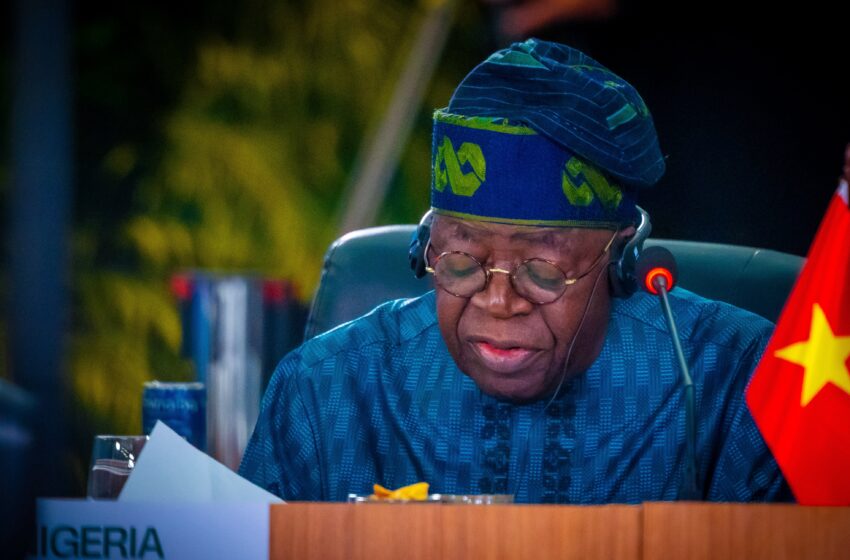Is Tinubu the third most corrupt person in world as claimed?
- Top Stories
crispng
- July 15, 2025
- 391

Fact-Check: Tinubu not ranked third most corrupt leader in the world—OCCRP and DUBAWA clarify. Photo credit: Bola Tinubu/X
A recent claim that President Bola Ahmed Tinubu was ranked as the third most corrupt person in the world by the Organized Crime and Corruption Reporting Project (OCCRP) has spread widely across social media, gaining traction among opposition supporters and the general public. However, an investigation by fact-checking platform DUBAWA has debunked this claim, declaring it misleading and unsupported by evidence.
The Viral Post and Its Reach
The false claim emerged from a June 30, 2025, post by the X account Peter Obi Grassroots Mobilization (@PO_GrassrotM), which stated: “BREAKING: Bola Tinubu ranked as the third most corrupt leader in the world.” The post included an image suggesting that OCCRP had officially ranked Tinubu based on a global corruption index. Within days, the post amassed thousands of shares, reactions, and nearly half a million impressions.
This misinformation was further amplified on Facebook through pages like Africa New Line 700, gaining even more traction. Given the sensitive nature of the claim, DUBAWA launched a verification effort to determine the accuracy of the statement.
BREAKING: Bola Tinubu ranked as third most c͎o͎r͎r͎u͎p͎t͎ leader in the world. pic.twitter.com/MAnZ64KrvG
— Peter Obi Grassroots Mobilization. (@PO_GrassRootM) June 30, 2025
What OCCRP Actually Published
The OCCRP is a respected global investigative journalism platform that annually publishes a report titled “Person of the Year in Organized Crime and Corruption.” This feature highlights individuals who are believed to have most enabled or profited from organized crime and corruption in a given year.
In the 2024 edition, Syrian President Bashar al-Assad was selected as OCCRP’s “Person of the Year.” Tinubu, along with four others—Kenya’s President William Ruto, Indonesia’s former President Joko Widodo, former Bangladeshi Prime Minister Sheikh Hasina, and Indian businessman Gautam Adani—was only listed among the top five most-nominated individuals by the public.
OCCRP clarified that the nominations were open to the public, and over 55,000 submissions were received globally. Importantly, the organization did not rank nominees based on the number of submissions, nor did it imply any guilt or definitive corruption ranking.
According to DUBAWA’s interview with Chikezie Omeje, OCCRP’s Africa Editor, President Tinubu was not officially ranked third or at any specific position by the organization.
“OCCRP did not name Tinubu the third most corrupt person in the world,” Omeje stated. “Nominations came from people worldwide. OCCRP had no control over who was nominated.”
Background and Misinterpretation
While Tinubu has faced various allegations in the past—including a 1993 U.S. case involving a $460,000 forfeiture and criticism over the #EndSARS protests—no international body has formally indicted or ranked him among the most corrupt leaders globally.
Still, these controversies likely contributed to his high nomination count during OCCRP’s open call. However, OCCRP’s panel of judges—including experts like Ghanaian journalist Anas Aremeyaw Anas and U.S. professor Louise Shelley—used evidence and scale of corruption, not votes, to determine the final recipient of the title.
Why the Claim Is Misleading
DUBAWA attributes the misinformation to either a misunderstanding or a deliberate distortion of OCCRP’s process. Although Tinubu received the third-highest number of public nominations, the final decision rested entirely with OCCRP’s judges, and being a finalist did not equate to being ranked.
Moreover, OCCRP itself has warned that its reporting may be misused by political actors. In its 2024 report, the organization stated: “The purpose of this award is singular: to bring recognition to crime and corruption — full stop.”
The assertion that President Tinubu was ranked the third most corrupt person globally is inaccurate and misleading. While he was a finalist in OCCRP’s 2024 nomination process, he was not officially ranked or selected, and the claim has no factual basis.
DUBAWA urges the public to always verify sensitive political claims, especially as Nigeria approaches future election cycles where misinformation can easily sway public opinion.

